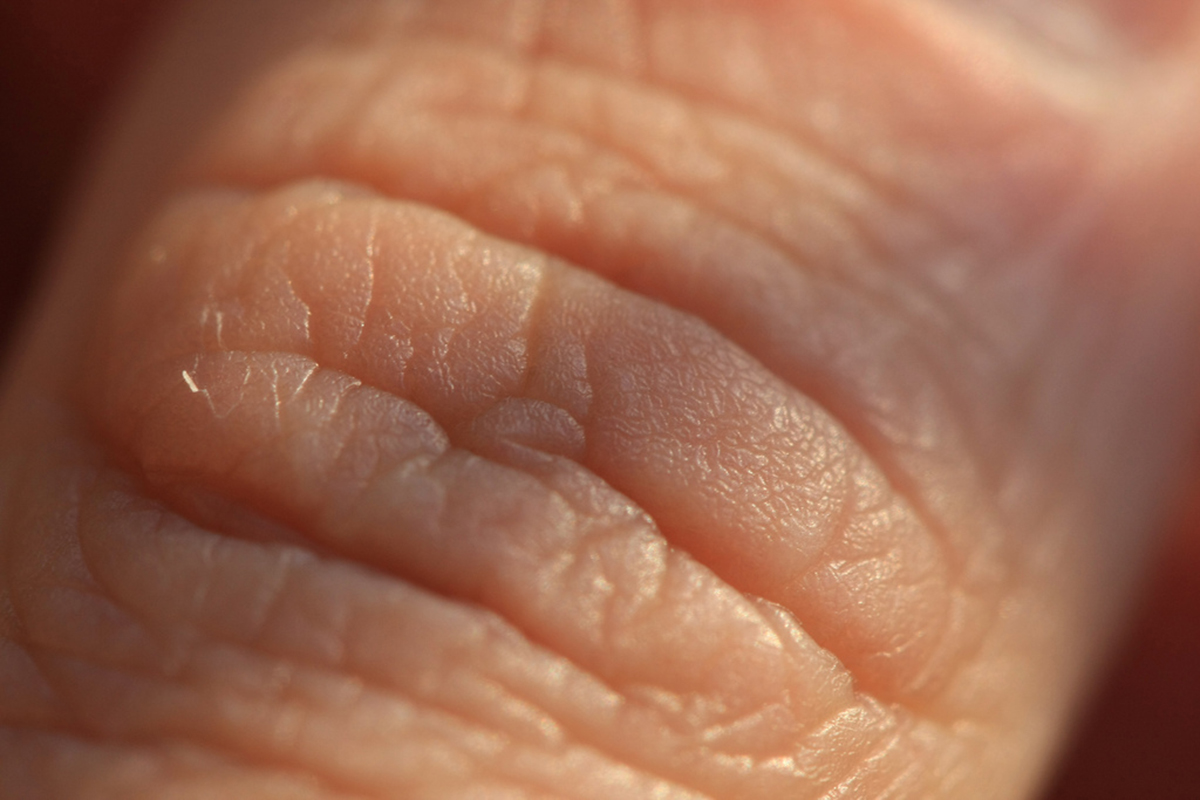What Is Excoriation
Patients have stated that they don't scratch the skin consciously; they first pick and then notice what they're doing. Skin picking disorder or excoriation is a disorder where people pick their own skin repeatedly, over and over again, and when the picking is so bad that causes tissue damage and influences work or other daily activities. It's hard to exactly say when a nervous habit becomes a disorder, but not every skin picking is considered excoriation. Many healthy people pick scabs, pimples or cuticles from time to time, and it's not that uncommon, but when it takes big amount of a day, leaves visible scars, and make you feel guilty and ashamed to show it to others — it should be treated.

Excoriation causes a lot of distress. People who do it often have other related psychological problems like anxiety or depression. It can start at any age, even in early childhood. It develops spontaneously, it two ways.
Other similar disorders include nail, lip or cheek biting, or pulling own hair. They all fall under body-focused repetitive behaviors, umbrella name for all behaviors that include self-injuries or compulsive damaging of the physical appearance. They're also often classified as obsessive-compulsive disorders, due to the urge for a repetitive behavior.
Causes Of Skin-Picking
Causes of excoriation or any other body-focused repetitive disorder are still not clear. Researchers are still working on the genetic component as a possible reason.
A French survey done on 10 neurotic patients found that most of them linked their excoriation with personal issues; four of them admitted abuse in early or adolescent age. This study was done to prove that skin-picking is an impulse rather than OCD (obsessive-compulsive disorder), but most of the diagnostic manuals still classify skin-picking among obsessive-compulsive disorders.
Sometimes an inciting incident is present, but most of the times not. Most patients with this disorder don't have a specific psychopathology; however, several psychiatric diagnoses that can be linked to excoriation include:
-
obsessive-compulsive disorder
-
depression
-
anxiety
-
body dysmorphic disorder
-
delusions (including schizophrenia)
Psychologists claim that the person hurts the skin to satisfy some internal needs, mostly psychological ones. They want to be taken care of. The patients are often frustrated and angry, denying psychic distress which makes the treatment of excoriation disorder very difficult.
Recognition And Treatment Of Excoriation
Research has shown that skin picking occurs in 1 of 20 people, mostly women. Everyone picks for different reasons. Someone does it out of pure boredom; sometimes they're not even aware of it. It becomes a problem when the skin is picked to battle negative emotions, mostly stress, and anxiety. People may feel relieved while doing it, but it's only short-term. Later, they feel pain, shame and guilt. It's not only bad because it's repetitive and painful. People insert many bacteria, especially those who tear the skin around the nails. Some of the patients even eat the skin.

Therapists first ask patients what came first, the contusion or the urge to itch. Patients should be honest, and they mostly are when they're aware of the problem. It should be clear that they first scratched and later saw a lesion. The skin lesions of excoriation fall under a dangerous itch-scratch cycle. Patient's initial urge to scratch causes even bigger urge.
Since several other conditions report skin itching and lesions, it's important not to confuse excoriation with any of them. Conditions with similar initial symptoms include cocaine use, scabies, multiple sclerosis, lymphoma, iron deficiency anemia, or internal cancers.
Lesions and scabs from picking out can be crusted and non-crusted, and they appear only on areas within the reach of the patient. They often evolve to ulcers. Scars and erosions often have angular borders, and quantity varies between several to hundreds.
To diagnose excoriation, patient must meet several important criteria:
-
regular and recurrent picking of the skin, resulting is erosions
-
patient has to report distress and decline in quality in most of the areas of life
-
more than one attempt to stop the habit
-
the condition can't be attributed to substance abuse
-
the condition can't be explained by other medical conditions
-
the condition can't be linked to any mental disorder.
It's important to create emphatic, non-judgmental and accepting environment for all the patients and avoid confrontation about a diagnosis. Patients can be sensitive and hurt. Besides therapy, doctors often prescribe medications for other psychiatric conditions to treat skin picking disorder since excoriation is still relatively unknown, but it's not a good practice.
Habit reversal therapy helps with a variety of repetitive behaviors. With excoriation, it helps to identify triggers and situations in which skin picking start to happen. Therapist helps to replace skin picking with other activities like squeezing the ball or anything else that occupies patient's hands and helps with the stress.
READ Cognitive Therapy Exercises
Stimulus control therapy helps to make changes in life and environment in hope to induce a 'braking' behavior. Doctor can advice wearing band-aids to prevent touching and feeling the skin, removing mirrors, etc. There are many methods — it depends on one doctor to another what will they choose.
- Photo courtesy of wigo18a: www.flickr.com/photos/wigo18a/16386759905/
- Photo courtesy of wigo18a: www.flickr.com/photos/wigo18a/16386759905/
- Photo courtesy of chodhound: www.flickr.com/photos/chodhound/8219637859/


Your thoughts on this